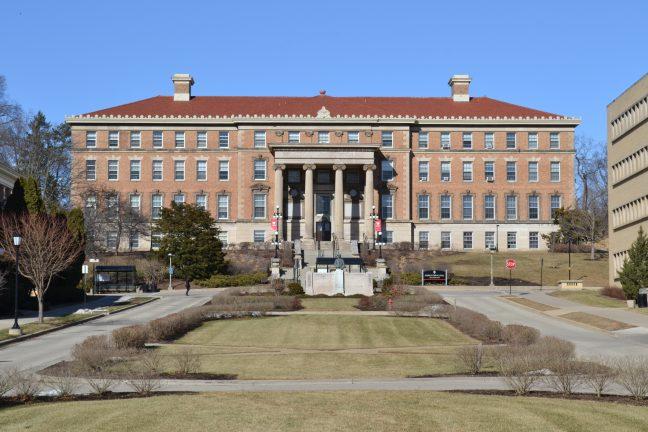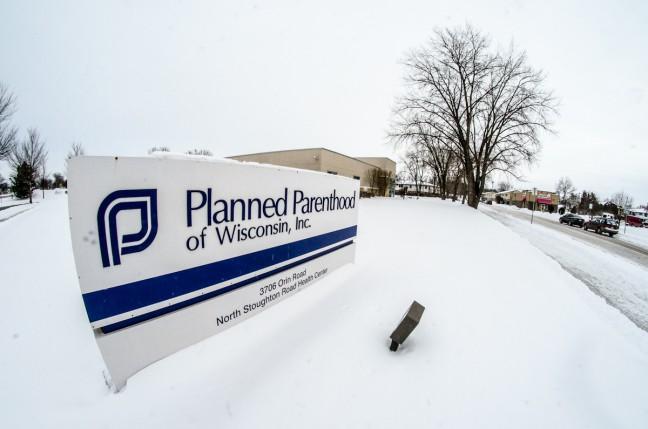The College of Agricultural and Life Sciences at University of Wisconsin this year is trying out a new program called QuickStart, aimed at helping incoming freshmen in CALS prepare for the college experience. One hundred and three current freshmen participated in the program.
Tanya Cutsforth, QuickStart program manager, said there has been a considerable amount of positive student feedback.
“Students that went through the program gave really high marks to their experiences, and many of them said it challenged them to think in many ways about who they were and what they want that they have not thought of before … As the semester went on, several of them said it better equipped them to deal with challenges,” Cutsforth said.
Cutsforth gave an example of the program preparing students for the road ahead, saying that a panel was held at one point about student success where upperclassmen conducted a “pretty frank” discussion about what it was like to be a student at UW and what challenges the freshmen would face.
CALS requires students to take a first year seminar program, and QuickStart is structured in a way that fulfills that requirement. To Cutsforth, though, the benefits of the program exceed more than just the degree requirement.
The program first involves an eight-week online course called Foundations — which takes place over the summer prior to move in — and the second part is a one week course on campus after move in. QuickStart students move into their residence halls early at this stage, and do things like visit labs, hear speakers and learn more about campus resources.
Sarah Akakpo, a freshman in the inaugural group of QuickStart, said QuickStart has been instrumental in showing her the resources available to her as a UW student.
“A lot of the resources on campus that I learned about with QuickStart I now use, so I use a lot of the libraries and I use UHS a lot, as well as the job center website,” Akakpo said.
Skyler Finucane, another student involved in QuickStart, was very satisfied with her experience as a whole. She originally saw it as a means of staying involved in school over the summer, along with an opportunity to get involved with campus and learn “the different ideas behind” UW.
Aside from preparing her for the challenges of school itself, she said that she has made a lot of friends through the program and moving in early took a lot of stress out of the process.
Making resumes, learning how to email professors for research opportunities and discovering student organizations were just a few of the valuable things Finucane said the program has helped her with.
Finucane was enthusiastic about her overall experience with QuickStart and CALS, and said she would recommend it to someone else.
“A lot of people who are in [the College of Letters and Science] or are coming here next year that are not sure of which college to go to, I try to tell them to go to CALS because I think it is awesome,” Finucane said.
Cutsforth also mentioned the potential this type of program had to branch out to other areas of UW. She said that there are already programs with a similar theme amongst groups like mechanical engineering students and international students.
Cutsforth said that this program is an opportunity to show other departments, other universities even, the positive effects of a program like this.
“If other students on campus and other schools and colleges realize that potential, then there is an opportunity for growth,” Cutsforth said.
Cutsforth sees QuickStart as a means of generating interest for CALS. More students end up in CALS than students who originally planned on pursuing a degree in CALS, she said.
Agriculture experts attempt to dispel myths, inform public on GMOs
Additionally, Cutsforth said one of the aims of the program was not only for students to speak positively of their experience with QuickStart but of their overall experience in CALS. One downside with QuickStart, Cutsforth said, is that it is only available to people who start in CALS, which is not something every incoming student thinks to do.
“One of the things we are hoping is that this program maybe attracts students who might not have otherwise thought to start in CALS, because this is just one of a number of opportunities for students to get a pretty tailored educational experience with a really interesting mix of majors beyond just science and agriculture,” Cutsforth said.













